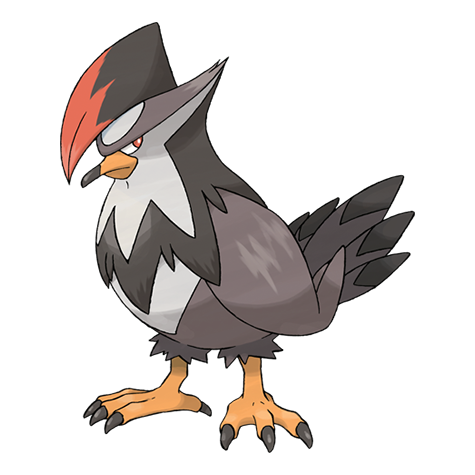I heard something to do with Nitrogen and …cow farts(?) I am really unsure of this and would like to learn more.
Answer -
4 Parts
- Ethical reason for consuming animals
- Methane produced by cows are a harmful greenhouse gas which is contributing to our current climate crisis
- Health Reasons - there is convincing evidence that processed meats cause cancer
- it takes a lot more calories of plant food to produce the calories we would consume from the meat.
Details about the answers are in the comments
Because you need considerably more resources to grow meat than you need to to grow a nutritionally equivalent amount of vegetables.
deleted by creator
Removed by mod
I remember driving through Iowa and seeing vast fields of corn and learning that the majority of that corn was not even destined for human consumption. That kinda blew my mind.
Luckily there is still enough left over to poison the population with high fructose corn syrup
If America was a food, it would be sugar and high fructose corn syrup.
You wanna know another fact? Not all corn can be consumed by humans. There is actually corn that can only be eaten by animals like cows.
deleted by creator
That’s like 3% of the cows. The rest is raised in factory farms.
It increases methane emissions and doesn’t scale
We model a nationwide transition [in the US] from grain- to grass-finishing systems using demographics of present-day beef cattle. In order to produce the same quantity of beef as the present-day system, we find that a nationwide shift to exclusively grass-fed beef would require increasing the national cattle herd from 77 to 100 million cattle, an increase of 30%. We also find that the current pastureland grass resource can support only 27% of the current beef supply (27 million cattle), an amount 30% smaller than prior estimates
[…]
If beef consumption is not reduced and is instead satisfied by greater imports of grass-fed beef, a switch to purely grass-fed systems would likely result in higher environmental costs, including higher overall methane emissions. Thus, only reductions in beef consumption can guarantee reductions in the environmental impact of US food systems.
https://iopscience.iop.org/article/10.1088/1748-9326/aad401
Taken together, an exclusively grass-fed beef cattle herd would raise the United States’ total methane emissions by approximately 8%.
https://iopscience.iop.org/article/10.1088/1748-9326/aad401/pdf
Further, plenty of the land that grazing takes place on is not naturally grassland, and the “grass-fed” that you’ll see anywhere are still getting grain as well
Most of the UK and Ireland’s grass-fed cows and sheep are on land that might otherwise be temperate rainforest – arable crops tend to prefer drier conditions. However, even if there were no livestock grazing in the rainforest zone – and these areas were threatened by other crops instead – livestock would still pose an indirect threat due to their huge land footprint
[…]
Furthermore, most British grass-fed cows are still fed crops on top of their staple grass
Places that have tried to scale grass-fed production up have all kinds of problems. For instance, New Zealand often likes to tout its grass-fed production, but the production levels are so high that it’s a heavy polluter. It would require a 12-fold reduction in size in one region to meet the bare minimum standards for drinking water safety
The large footprint for milk in Canterbury indicates just how far the capacity of the environment has been overshot. To maintain that level of production and have healthy water would require either 12 times more rainfall in the region or a 12-fold reduction in cows.
[…]
The “grass-fed” marketing line overlooks the huge amounts of fossil-fuel-derived fertiliser used to make the extra grass that supports New Zealand’s very high animal stock rates.
Removed by mod
that land could be used to house millions of humans
deleted by creator
Plus is the fact that not all plants have the right amount of vitamins and minerals necessary to maintain the human body like meat does. Although it is possible, it does require research and monitoring to ensure that your getting all the nutrients you need. And yes, meat just tastes good.
Removed by mod
- Ethical reasons: hundreds of billions of animals are killed every year (not counting fish), after living a miserable and short life.
- Environmental: greenhouse emissions (CO2 and methane), deforestation for pastures, water pollution, are all caused by animal agriculture. If everyone went vegan we’d need only 25% of the land we currently use for agriculture.
- Health: there is some evidence that meat causes cancer, and convincing evidence that processed meat causes cancer. Also, the use of antibiotics for animals can lead to the development of antibiotic-resistant bacteria.
Cow farts are methane, which are a more aggressive form of greenhouse gas, though with shorter lifespan.
For the cancer risk, this is the pertinent info:
An analysis of data from 10 studies estimated that every 50 gram portion of processed meat eaten daily increases the risk of colorectal cancer by about 18%.
That’s about half a hot dog. Seeing as the news isn’t exploding, this means that this is relative risk. Meaning your current chances of getting colorectal cancer is X. Eating a hot dog every other day continuously multiples your chance by 1.18. American Cancer Society states that over their lifetime, 1 in 23 men (4.35%) of men will develop colorectal cancer. This means if you ate 1 hot dog every other day continuously, a man’s odds of contracting colorectal cancer changes from 4.35% to 5.13% over their lifetime.
That’s just for colorectal cancer. It also affects other types of cancer (like breast cancer) and increases the chance of dying from heart disease considerably.
But there weren’t any good numbers on those I saw in there. Which is why I ignored the entire “meat” claim as it didn’t list useful metrics. “Might cause cancer” doesn’t really help anyone. There only seemed to be useful data about processed meat and colorectal cancer.
Most tree and forest loss is from making land for grazing.
Not for grazing but for crops that are fed to animals in animal agriculture.
over 80% of soybeans are pressed for oil for human uses.
Without a source this is just a bogus claim.
Removed by mod
76% of soybeans world wide are used as animal feed as per your own source. I’m not sure what you are trying to argue with your original comment to me?
the bulk of what’s fed to animals is industrial waste from making soybean oil.
Care to quote the relevant parts of your sources? I’m not going to read everything from that just to find this claim.
To learn more about the environmental impact of meat consumption, I recommend this Our World in Data article: https://ourworldindata.org/environmental-impacts-of-food
I would highlight this chart: https://ourworldindata.org/environmental-impacts-of-food#interactive-charts-on-environmental-impacts-of-food-production
For example, getting 100 g of protein from beef emits ~ 50 kg of CO2. Getting 100 g of protein from tofu only emits ~ 2 kg of CO2.
animals are fed parts of plants that people can’t or won’t eat. all of the studies about the ecological impacts ignore this fact and then attribute the water used to produce, say, cotton to beef.
This is simply not true. Globally, 77% of the land area that’s used for agriculture is used either by livestock or to grow food to feed to livestock (such as corn and soy). Only 23% is used for crops for direct human consumption (1): This makes sense intuitively: If I feed a cow 1 kcal of energy, it will create way less than 1kcal of energy to be consumed. In fact, beef has an energy efficiency of 1.9%. This means, for every 100 kcal the cow eats, you only get out 1.9 kcal (2). Otherwise, cows would defy the laws of physics. Do you really think that the 74 billion chicken, 620 million sheep and 330 million cattle that we slaughter each year for meat just are fed human-food leftovers? (3)
1: https://ourworldindata.org/global-land-for-agriculture 2: https://ourworldindata.org/meat-production#energy-conversion-efficiency 3: https://ourworldindata.org/meat-production#livestock-counts
Ask the cow what she thinks?
She said moo
deleted by creator
Pig says oink
The main issue is probably less meat itself than the ginormous quantities we consume.
Most livestock farming is intensive, meaning they can’t rely on grazing alone and need extra food sources, typically corn. They emit methane, a greenhousing gas on steroids.
That grain is produced through very intensive agricultural methods because we can’t get enough of it. It consumes ridiculously large amount of water and slowly degrades the soils. Nitrates eventually end up in the sea, causing algea to proliferate while other lifeforms are suffocated. See the dead zone in Mexico’s gulf.
71% of agriculture land in Europe is dedicated to livestock feeding.
The percentage must be similar or higher in America, and don’t count North America alone: without grains from Brazil, we’re dead. Period. So next time you hear the world blaming Brazil for deforestation, keep in mind that a large share of it is to sustain livestocks…
Cattle farming in the USA is heavily subsidized, by allowing farmers to use federal land for grazing for free (I believe something similar is in place in Canada?). The claim they “take care of the land” is absurd: nature has been doing that for millenias without needing any help. First nations have been living in these lands also without supersized cows herds and it was going alright. Farms actually prevent wildlife to take back its place.
But I wouldn’t blame them. People in North America (among others, and I live in Canada, definitely me too) eat indecent and unhealthy quantities of meat, and that has to come from somewhere.
Now, simple math will tell you: if everyone in the world was consuming meat in the same quantities as us, there would’nt be enough suitable land on Earth to grow the corn that needs to go with it.
Another thing is not all meats are equal in terms of pollution. From the worst to the least bad, in equivalent kgCO2 per kg of meat you can actually eat: -Veal: 37 -Chicken (intensive, in cage): 18 -Beef: 34 -Pork: 5–7 -Duck, rabbit, pork: 4–5 -Chicken ("traditonal, free range): 3–4 -Egg (for comparison): <2
You can appreciate the orders of magnitude!
There are only 2 ways out of this:
- reduce meat consumption, and pick it right
- grown meat (meat made without the animal around it, in machines)
One can be done today, starting with your next meal. We don’t need meat every meal, we don’t even need meat every day, but it is true that going full vegetarian force a certain gymnastic to get all the nutriments one need.
The other solution is barely getting there, so there are still unknown (food quality, resources consumption, etc.) and the economics may not help it taking off.
The third (and let’s face it: current approach at national level everywhere on this issue) option is to do nothing and keep going as if the problems didn’t exist. This is guaranteeing a famine in the coming decades. When we’ll fail to feed our livestock, and it will start dying, it will be too late to turn around and get the whole agriculture sector to transition. These things take many years.
We’re trying to reduce our meat consumption at home, or to favor the least impacting ones. We still eat too much meat, but I hope we can gradually improve.
For the methane issue. Apparently adding seaweed to their feed reduces than by up to 82%: https://caes.ucdavis.edu/news/feeding-cattle-seaweed-reduces-their-greenhouse-gas-emissions-82-percent
EVEN at 18% it’s way too fucking high
Trials in Tasmania this year sadly did not reach anywhere near the original methane reduction goals.
I mean, it’s better than nothing but seriously dairy is fucked long term. It will always be an inefficient system compared to consuming plant-based proteins directly, and lab grown milk protein is gonna be huge. And that is good news, because dairy farming sucks in terms of land use, fertilizer run off, animal welfare, and, here in NZ at least, the destruction of native tree based ecosystems to make way for grass monocultures.
I looked it up and it says a 28% reduction was achieved. That’s still a huge reduction and perhaps, with other feed formulations, an even bigger reduction can be made.
I guess my only follow up would be that if we reduce our meat consumption to a more sustainable level, that would mean that we would have to replace our protein source with something more sustainable.
Seafood maybe out of the question as I hear concerns about overfishing as it is.
I would assume that would leave plant protein, like Peanuts or something similar. Are there other sources of protein that are in development (Also major assumption that Beyond and those other meats are also based on the plant protein)
Beans dude. They’re good and good for you. Also lentils are great
well lab grown meat has just recently been approved for sell. So that’s a major thing. But there are a lot of plant protein resources. I’m vegetarian so I eat eggs and some milk. (I actually prefer almond milk, most of my milk consumption probably comes from why protein powder cause I can’t afford the plant protein powders for weight lifting). Now as someone who actually studied nutrition in college, the confusion comes from the fact that people don’t factor amino acids. As my teacher said “You don’t have a protein requirement, you have an amino acid requirement” once you look at it in this way, there are ways around this that we can do, but there are shortcomings as of right now (especially socio-economic) if you cut out eggs. However, it would be pretty easy to add the missing nutrients in other foods the issue comes from good ol classic capitalism issues of “efficiency and money” shit.
Honestly, some of the biggest problems we face is just a matter of focus and funding in research. There are a lot of solutions and it’s honestly amazing how far we’ve come despite special interest groups (oil, farming trusts, etc) have worked to stunt the growth of things, so you just have to imagine what ecological, vegan, etc tech could do if it hand the same funding and backing as these other sectors. I honestly can’t wait.
Meat is actually not a good source of protein compared to plant proteins. Meat was a good way of turning stuff we couldn’t eat into stuff we can, but now they just feed livestock grains anyways.
Lentils have waaaayyyyyy more protein to weight.
Lentils have waaaayyyyyy more protein to weight.
But they taste like lentils :-(
Delicious?
I mean yeah. Sometimes they’re really good. Sometimes they’re bland mush.
Yeah, you have to cook them right, just like anything. Meat tastes awful if you cook it wrong, too.
Besides the other stuff I wrote, I just like chickpeas better.
But must of us grew up to know how to cook meat. I learned how to cook vegetarian meals that aren’t side dishes when I was 30. Besides spaghetti Napoli I mean.
🤮
Lentils have waaaayyyyyy more protein to weight.
I’m not sure I understand your correctly, but lentils have ~20g protein per 100g while chicken has ~50g. Do you mean considered to grains?
Everything I can find says that lentils have waaaayyyy more protein. Maybe it’s the difference between cooked and dry? The water is going to add a lot of weight and zilch protein.
Can you post a source? I’d like to believe this but it seems incorrect considering the protein content I googled.
https://cheatdaydesign.com/what-does-100g-of-protein-look-like/
Could you? I’m very curious as to the discrepancy lol
Yes, pulses like peanuts, beans, lentils, as well as rice and other grains (and a variety of other vegetable sources) are alternative sources of protein. As far as development, the only thing aside from plant-based meat substitutes are the new lab-grown meats that are being developed. Those are actual meat, but grown in a lab instead of on an animal’s body.
Removed by mod
Unless it’s meat synthesized in a lab, it requires the forced breeding, enslavement, abuse, and eventually murder of sentient animals which don’t jive too well with the golden rule.
I personally could give a hoot about it’s negative impacts on environment. Gd bacon memes, humanity can go extinct good riddance
deleted by creator
you know wild animals are suffering and dying and whole species are going extinct as a result of climate change and deforestation, right? how does that jive with the golden rule in your book?
Meat animal farming contributes to climate change and abstaining makes the demand for meat lower. It’s actually perfectly consistent.
abstaining makes the demand for meat lower.
no, it doesn’t.
Demand just means how much is bought. Less bought is less demand.
I’m pretty sure more is bought every year, not less
Less than it would be with X people plus 1 (me)
Are you deliberately being obtuse?
Its not bad in my world
You’re not getting many answers yet regarding nitrogen.
As a preface: When it comes to climate and environmental concerns with respect to agriculture, the word “nitrogen” does usually not refer to the completely harmless atmospheric nitrogen (N2). Instead, it refers to various compounds that contain nitrogen.
Nitrogenous pollution from cattle comes in two shapes:
The first is methane (NH3). A single cow burps and farts out about 100kg of methane each year. Methane is a greenhouse gas that’s 28 times as potent as CO2. This means a single cow is responsible for as much as 2800kg equivalent in CO2 each year due to burps and farts alone. For reference, the CO2 per capita emissions globally are about 4 tons (4000kg) per year, for all sources combined. Cows, relatively speaking, therefore produce a huge amount of CO2 equivalent.
The second is all the nitrogenous compounds in their excrements. This acts as a fertilizer on soil and in the water. While that sounds good, it leads to various unwanted effects. One is that agricultural runoff causes algal blooms in water that then ends up killing a significant amount of marine life. Another is that nutrient-rich soils tend to seriously decrease plant species diversity. Many native and wild plants actually need nutrient-poor soils to thrive. Those plants will get outcompeted by a small group of fast-growing plants that do well in all the cow-poop-infested soil. These compounds also tend to travel far, via agricultural runoff or even via the air, so ecosystems far away from farms are also impacted.
Different vegetarians have different motives. Some of the more common ones include:
- Moral concerns, e.g. about animals suffering or being killed. This is common among Buddhist vegetarians, animal-rights vegetarians, and utilitarian vegetarians.
- Health concerns; belief that a vegetarian diet is better for one’s health, whether due to substances naturally in meat (e.g. saturated fat) or introduced by industrial meat production.
- Environment and climate concerns; that raising animals for meat is bad for the environment, contributes to climate change, is unsustainable, etc.
animals are fed parts of plants that people can’t or won’t eat. all of the studies about the ecological impacts ignore this fact and then attribute the water used to produce, say, cotton to beef.
Just how many times did you copy-paste that comment?! Are you a bot or a lobbyist by any chance?
You think that we started producing some grains, and one day we realized we had too much by-products and one smart guy said: “let’s start a cows herd so that they’ll eat these”. Sounds legit. Especially if you consider that eating beef the way we do is very recent in human history, and still inexistent in many parts of the world. Poor folks must be buried under the by-products…
So, since I don’t think farmers are total morons, I would rather imagine they would produce different kind of food, such as leguminous.
deleted by creator












